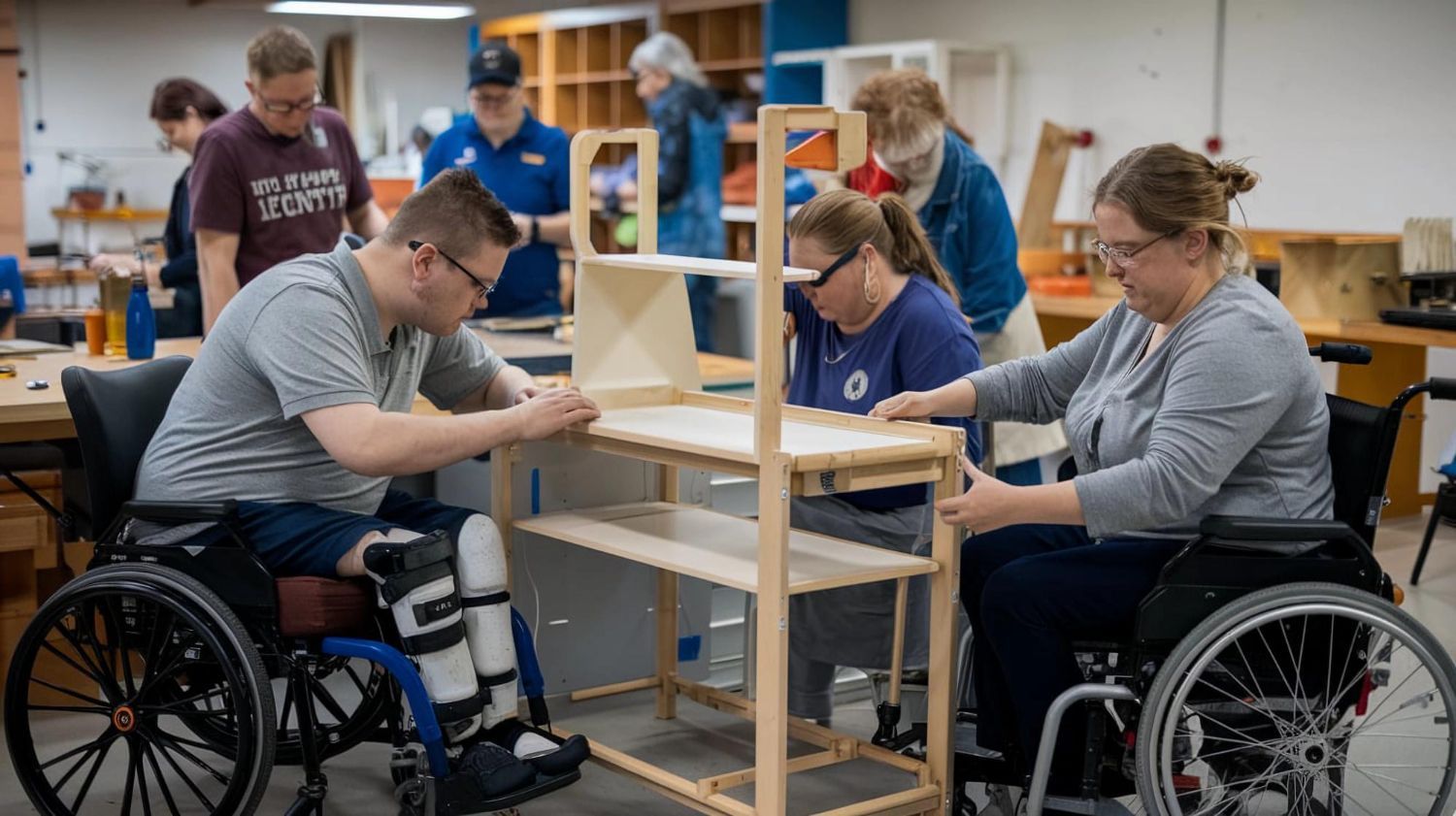Workforce sustainability in the NDIS: Building long-term career pathways for support workers
The National Disability Insurance Scheme (NDIS) has transformed the way Australians with disabilities access support, creating greater choice and independence for participants. However, this growing demand has also placed enormous pressure on the workforce. Support workers are the backbone of the NDIS, yet many face challenges such as high turnover, burnout, and limited career progression.
For the NDIS to thrive, workforce sustainability must be a priority. Building long-term career pathways for support workers is essential to ensure not only a steady workforce but also quality, consistent care for participants.
Why workforce sustainability matters
Support workers often form the most regular and trusted connection for NDIS participants. Their role goes beyond tasks; it includes building relationships, fostering independence, and enhancing the participant’s quality of life.
Yet, the sector faces some pressing issues:
- High turnover rates due to casual contracts, irregular shifts, and job insecurity.
- Limited training opportunities that restrict career development.
- Emotional and physical demands leading to burnout.
- Competition for workers across other sectors such as aged care and healthcare.
If these challenges aren’t addressed, participants risk losing the continuity of care that is central to achieving meaningful outcomes.
Creating career pathways for support workers
To build a sustainable NDIS workforce, the industry must shift its approach to support workers. Rather than seeing these roles as temporary or entry-level, there is a need to position them as stepping stones to rewarding and long-term careers.
1. Structured onboarding and induction
A clear and supportive entry point sets the tone for a worker’s career. Comprehensive onboarding that covers NDIS standards, safeguarding practices, and participant-focused values ensures workers feel prepared from day one. Induction programs should also highlight growth opportunities within the organisation, helping workers see beyond their immediate role.
2. Upskilling through continuous learning
Ongoing training is critical for retaining workers and improving participant outcomes. Areas such as:
- Behaviour support
- Complex care needs
- Cultural competency
- Assistive technology
can all be incorporated into professional development programs. By investing in upskilling, providers show workers that their growth matters, creating loyalty and improving service quality.
Pathway Talent plays a key role here, connecting employers with workers who have not only the required certifications but also a willingness to expand their skills over time.
3. Recognising transferable skills
Many NDIS support workers develop skills that are highly transferable across healthcare and social services. Highlighting these skills and offering career guidance helps workers see pathways into roles such as:
- Team leaders or supervisors
- Case managers
- Allied health assistants
- Coordinators of support
This approach turns short-term placements into stepping stones for career advancement, keeping workers within the broader care sector.
4. Building flexibility into roles
Work–life balance is increasingly a deciding factor in job satisfaction. Offering flexible schedules, part-time opportunities, and predictable rosters allows support workers to stay in the workforce for longer. For parents, carers, or those studying, this flexibility makes the NDIS sector a more attractive long-term option.
5. Mentorship and peer support
The NDIS workforce can feel isolating, particularly for those working one-on-one with participants in home or community settings. Mentorship programs and peer support networks foster a sense of belonging and shared learning. Experienced workers can guide new entrants, while support systems reduce the risk of burnout.
6. Recognising and rewarding contribution
Support workers deserve recognition not just for what they do but for the life-changing impact they make. Celebrating milestones, offering career progression, and providing fair pay create a stronger culture of respect and retention.
The role of partnerships in workforce sustainability
Workforce sustainability doesn’t fall on one organisation alone. Collaboration between providers, training institutions, and staffing partners is crucial.
- Providers can invest in ongoing development and clear career ladders.
- Training institutions can tailor programs that address real-world participant needs.
- Staffing agencies like Pathway Talent can bridge the gap by matching workers to roles that align with their skills, career goals, and lifestyle needs.
Together, these partnerships ensure the sector attracts and retains the right talent while also preparing for future demand.
Benefits for NDIS participants
When support workers see a clear future in the sector, participants benefit directly. A sustainable workforce means:
- Greater continuity of care, reducing the disruption of frequent staff changes.
- Higher quality support from skilled and confident workers.
- Stronger trust between participants and their support teams.
- A sector that can adapt and grow as the needs of participants evolve.
Conclusion
The NDIS is only as strong as its workforce. Support workers deserve recognition not as temporary staff but as professionals with long-term career opportunities. By investing in training, creating career pathways, offering flexibility, and building supportive networks, the sector can achieve true workforce sustainability.
At Pathway Talent, we are committed to empowering NDIS support workers to see their role as more than just a job—it is the beginning of a rewarding and meaningful career. By working with employers and workers alike, we help build the foundations of a workforce that will sustain the NDIS well into the future.











